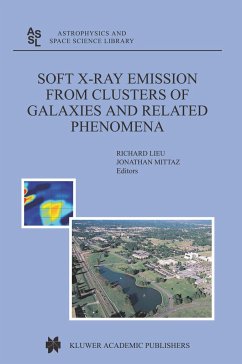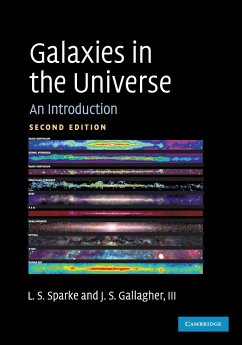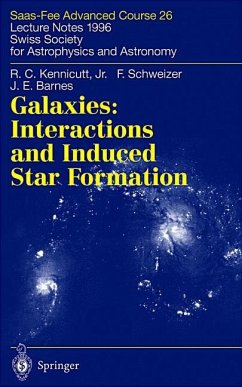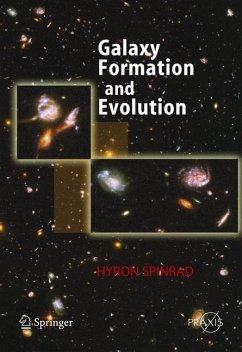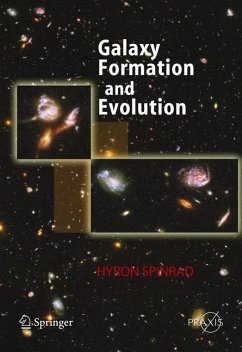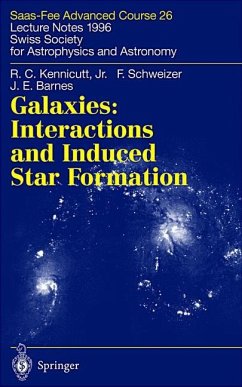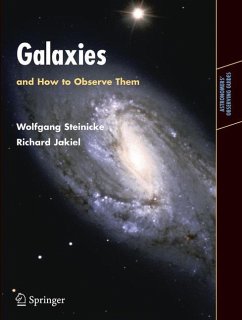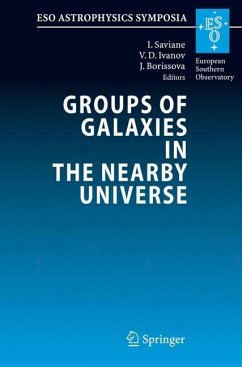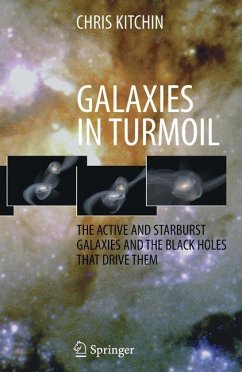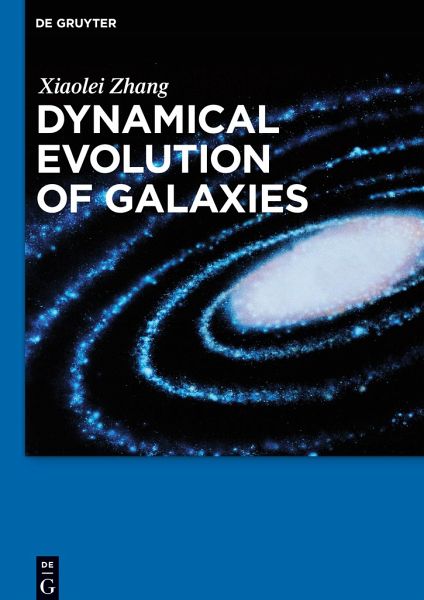
Dynamical Evolution of Galaxies
Versandkostenfrei!
Versandfertig in 1-2 Wochen
159,95 €
inkl. MwSt.
Weitere Ausgaben:

PAYBACK Punkte
0 °P sammeln!
This research monograph presents a new dynamical framework for the study of secular morphological evolution of galaxies along the Hubble sequence. Classical approaches based on Boltzmann's kinetic equation, as well as on its moment-equation descendants the Euler and Navier-Stokes fluid equations, are inadequate for treating the maintenance and long-term evolution of systems containing self-organized structures such as galactic density-wave modes. A global and synthetic approach, incorporating correlated fluctuations of the constituent particles during a nonequilibrium phase transition, is adop...
This research monograph presents a new dynamical framework for the study of secular morphological evolution of galaxies along the Hubble sequence. Classical approaches based on Boltzmann's kinetic equation, as well as on its moment-equation descendants the Euler and Navier-Stokes fluid equations, are inadequate for treating the maintenance and long-term evolution of systems containing self-organized structures such as galactic density-wave modes. A global and synthetic approach, incorporating correlated fluctuations of the constituent particles during a nonequilibrium phase transition, is adopted to supplement the continuum treatment. The cutting-edge research combining analytical, N-body simulational, and observational aspects, as well as the fundamental-physics connections it provides, make this work a valuable reference for researchers and graduate students in astronomy, astrophysics, cosmology, many-body physics, complexity theory, and other related fields.
Contents
Dynamical Drivers of Galaxy Evolution
N-Body Simulations of Galaxy Evolution
Astrophysical Implications of the Dynamical Theory
Putting It All Together
Concluding Remarks
Appendix: Relation to Kinetics and Fluid Mechanics
Contents
Dynamical Drivers of Galaxy Evolution
N-Body Simulations of Galaxy Evolution
Astrophysical Implications of the Dynamical Theory
Putting It All Together
Concluding Remarks
Appendix: Relation to Kinetics and Fluid Mechanics




